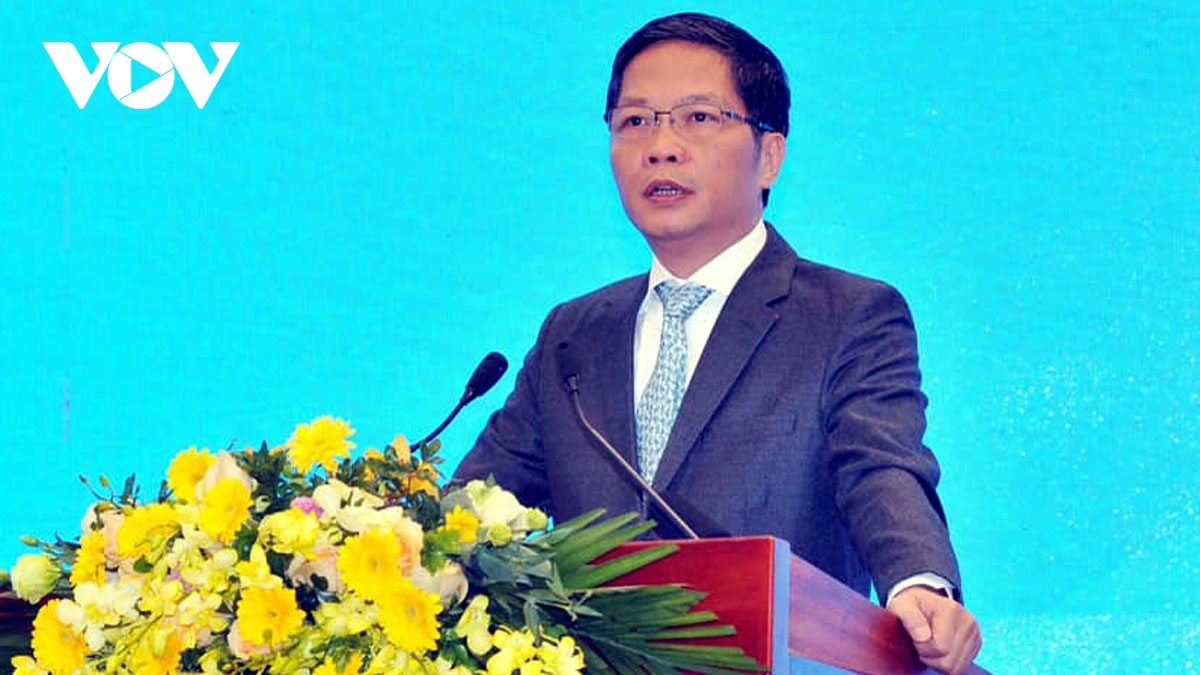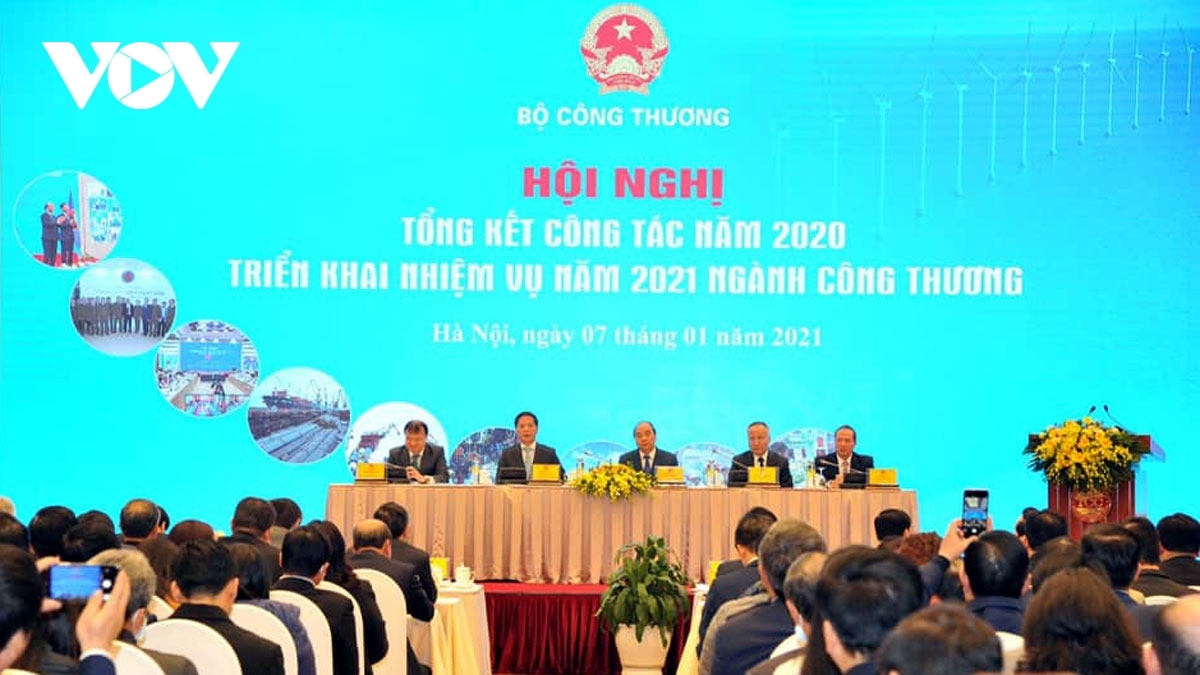Industry and trade sector a key driver behind economic growth in 2020
VOV.VN - Following the fulfillment of targets set for 2020, the industry and trade sector made positive contributions to overall economic growth at 2.91%, helping the nation maintain its steady growth momentum in import-export activities with a total turnover of over US$500 billion for the second consecutive year.
This information was released during a conference on the industry and trade sector held on January 7 in Hanoi aimed at reviewing last year’s activities and devising tasks ahead for 2021.
Upon addressing the event, Minister of Industry and Trade Tran Tuan Anh pointed out a range of difficulties and challenges in implementing the Socio-Economic Development Plan 2020, largely due to the complicated nature of developments in the novel coronavirus (COVID-19) pandemic. This has served to have a profound impact on the local economy, especially the direct effects that have disrupted the country’s supply chain and import and export markets.
“Despite facing special circumstances, the industry and trade sector has comprehensively accomplished targets assigned by the National Assembly and the Government as a contribution to the overall economic growth of the whole country, coupled with guaranteed macro foundations, improved growth quality, and in-depth economic restructuring,” Minister Anh affirmed.
By the end of 2020, the nation’s exports turnover reached US$281.5 billion, a rise of 6.5% compared to 2019, while trade surplus hit a record high of US$19.1 billion, marking five consecutive years of enjoying a trade balance surplus.
This comes after industrial sectors overcame difficulties in the context of disrupted supply chains, with added industrial value in 2020 increasing by 3.36%, a figure higher than the overall growth rate of the national economy. Meanwhile, the processing and manufacturing sector also recorded a strong figure of 5.82%, thereby serving as an important driver behind economic growth.

Most notably, international integration activities have not only been maintained despite the global spread of the COVID-19 pandemic, but also promoted through many new ways and initiatives which received great appreciation both regionally and globally.
In line with this, the negotiation, signing, and implementation of free trade agreements (FTAs) yielded an array of important results. This can be seen through FTAs such as the Comprehensive and Progressive Trans-Pacific Partnership (CPTPP), the EU-Vietnam Free Trade Agreement (EVFTA), the Regional Comprehensive Economic Partnership (RCEP), and the UK-Vietnam Free Trade Agreement (UKVFTA).
Moving into 2021, both the global and regional situation is anticipated to continue to see complicated, faster, and more unpredictable developments, with trends of trade protectionism and strategic competition among major economies set to become fiercer, along with an increasingly complicated COVID-19 pandemic.
Faced with these challenges moving forward, the industry and trade sector has agreed to swiftly carry out key tasks and solutions for the year. Indeed, there will be a major focus on improving institutions, renovating state management across all fields, and speeding up the restructuring of industries associated with digital transformation such as the processing and manufacturing industry to create breakthroughs and new drivers for growth.
In his remarks at the conference, Prime Minister Nguyen Xuan Phuc underlined the need for the industry and trade sector to focus on solving existing problems to better serve socio-economic development and move it in a sustainable direction to feature the engagement of the non-state economic sector.
It is therefore imperative to effectively implement and exploit the market opportunities brought about by the implementation of FTAs to ensure the balance of supply and demand, create linkages between the production and distribution of goods, and strengthen connectivity throughout the value chain.
PM Phuc expressed his confidence that, with both solidarity and creativity, the industry and trade sector will overcome difficulties and challenges in order to successfully implement these objectives and tasks. This will help it to make even greater contributions to the process of national industrialisation, modernisation, construction, and defence.


